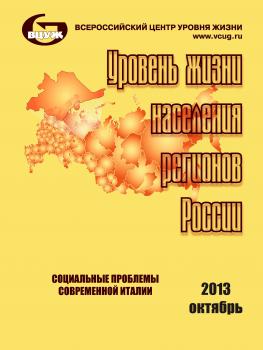Russian Federation
Object. Values, ethical system, cultural system, cultural processes, spiritual processes, social policy, cultural policy, spiritual lifestyle. Subject of the Study. St. Tommaso Aquinas´ ethical and theological concept. Classification of St. Aquinas´ teological and cardinal virtues. Ethical regulation of the economy. Normative value adjustment through socialization and culture. The phenomen of «alternative ethics», different sets of codes of ethics in various sectors and groups of society. Group ethics and aesthetics of the group. Religious and spiritual life of man. Spiritual and emotional meanings of life. The role of sense of life structures in the personality structure of a human being. Value-meaning dimension of the inner world and the course of human life. Style levels in culture: high (spiritual), the median (the book) and low (everyday). Tradition as the core of culture and cultural periphery. Tradition as a historical path of culture. Traditional culture as a hierarchy of norms and values. Processes of individuation and inconciliar (insobornal) iteration of consciousness and the formation of the cathedral and individualistic psychology of the people. Postmodernism as the diversification of values and the systematic destruction of standards. Destruction of cultural styles and norms, replacing the value vertical by the horizontal line bearing not the process of transforming culture into mass culture. Globalization: The total mixing and assimilation of cultures. World unification of politics, economics, law, culture, morality, and religion. The concept of common spaces: economic, legal, educational and cultural. The concept of «common values». «Similar» values - not «similar», not «identical» - ie not common. Karl Mannheim: negative democratization, dehumanization, simplifying mechanisms of cultural selection, expansion and weakening of the elites. Nietzsche on the causes of the decline of culture: 1) the lush flowering of intermediate forms; 2) types of diminution; 3) break with tradition; 4) domination of instinct, power of the unconscious; 5) the weakening of the will. Purpose. Forming a systematic set of problems solution of which requires spiritual and moral regulation and supports on the spiritual legacy of Christianity and general Christian experience, including of St. Tommaso Aquinas´ spiritual heritage.
virtue, culture, alternative ethics, collegiality, intervalues relationships, values, norms, tradition, lifestyle, style, deformation of culture, post-modernism, globalism, negative democracy, mechanisms of cultural selection, expansion and weakening of the elites, mass culture, cultural space
1. Этика и социальная политика
Св. Томмазо Аквинского в советскую эпоху рассматривали в основном как теолога. Фактически он был не только теологом, но и ученым-гуманитарием энциклопедического склада, философом и экономистом, историком, социологом и юристом. В Европе в XIX в. на фоне возрождения неотомизма его стали именовать «князем философии» (Doctor Universalis, «princeps philosophorum»).
На нашем симпозиуме мы особо выделим его вклад в выявление и анализ связи экономики и этики, в научное обоснование необходимости этического регулирования рыночной экономики, которая сложилась в городах-государствах Северной и Центральной Италии в ХI–ХII вв.
Этико-теологическая концепция. По учению св. Томмазо Аквинского, Бог является конечной целью всех моральных деяний человека, а все остальные цели человеческого бытия рассматриваются как совместимые или несовместимые с конечной — благой целью. Уклонение от благой цели — зло, природа и корень зла. Греческое слово грех (hamartia) означает промах, ошибку. В византийском богословии «грех» дословно означало «промах мимо цели». Какой цели? Единственной и главной — спасение души. В русском языке обыденное значение слова «грех» изначально также соответствовало понятию ошибки (в словоупотреблении «погрешность», «огрехи»). По мысли Аквината, зло — это прежде всего метафизическое зло, коренящееся в неправильном образе бытия человека, недостаточной природе его благо-бытия. Теологическое толкование зла у св. Томмазо совпадает с общехристианским в том смысле, что зло не имеет собственного бытия, ибо Творец бытия — Бог, а изобретатель зла — диавол, не имеет собственного бытия, ибо вся бытийность во власти Бога. Поэтому и «зло» не имеет самостоятельной сущности, а лишь паразитирует на добро-бытийности человеческой природы. Теодицея (лат. theodicea — богооправдание; греч. θεός, «бог, божество» и δίκη — право, справедливость) в православии связывает происхождение зла с уклонением воли человека от Добра и Истины. Бог дал человеку дар разума и свободы воли и не отнимает его, но ждет от человека доброго произволения, добромыслия и доброделания.
1. Trubetskoy E.N. Smysl zhizni. M., 1994.
2. Psikhologiya lichnosti v trudakh otechestvennykh psikhologov: Khrestomatiya po psikhologii / Sost. L.V. Kulikov. SPb., 2000.
3. Il´in I.A. Osnovy khristianskoy kul´tury. SPb., 2004.
4. Ortega-i-Gasset. Estetika. Filosofiya kul´tury. M., 1991.
5. Gorelov A.A. Kul´turologiya. M., 2002.
6. Nikolaeva O. Sovremennaya kul´tura i pravoslavie. M., 1999.
7. Leont´ev K.N. Izbrannoe. M., 1993.
8. Ortega-i-Gasset. Chto takoe filosofiya. M., 1991.
9. Berdyaev N.A. O naznachenii cheloveka. M., 1993.
10. Berdyaev N.A. Samopoznanie. M., 1991.
11. Berdyaev N.A. Smysl tvorchestva. M., 1989.
12. Berdyaev N.A. Filosofiya svobody. M.: Pravda, 1989.
13. Eko U. Imya rozy. M., 1989.
14. Kul´turologiya / Red. G.V. Drach. Rostov-na/D., 1997.
15. Paramonov B. Konets stilya. SPb.; M., 1997.
16. Kheyzinga I. Igra i poeziya. Samosoznanie evropeyskoy kul´tury XX veka. M., 1991.
17. Sorokin P.A. Chelovek. Tsivilizatsiya. Obshchestvo. M.: Politizdat, 1992.





